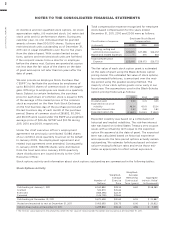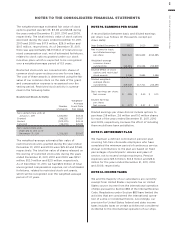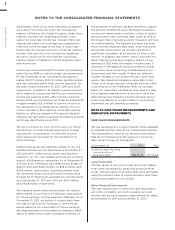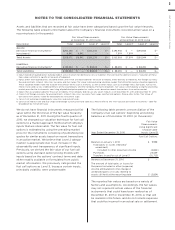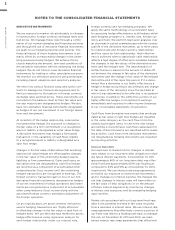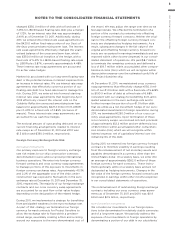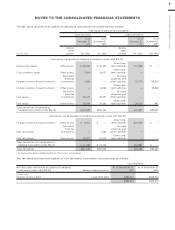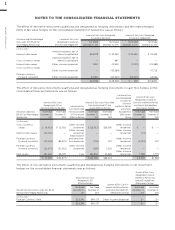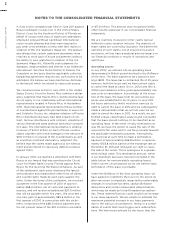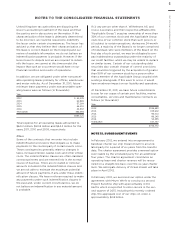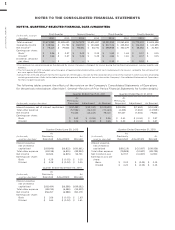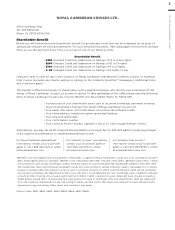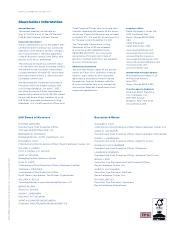Royal Caribbean Cruise Lines 2011 Annual Report Download - page 96
Download and view the complete annual report
Please find page 96 of the 2011 Royal Caribbean Cruise Lines annual report below. You can navigate through the pages in the report by either clicking on the pages listed below, or by using the keyword search tool below to find specific information within the annual report.
2011 ANNUAL REPORT 92
NOTES TO THE CONSOLIDATED FINANCIAL STATEMENTS
A class action complaint was filed in June 2011 against
Royal Caribbean Cruises Ltd. in the United States
District Court for the Southern District of Florida on
behalf of a purported class of stateroom attendants
employed onboard Royal Caribbean International
cruise vessels alleging that they were required to
pay other crew members to help with their duties in
violation of the U.S. Seaman’s Wage Act. The lawsuit
also alleges that certain stateroom attendants were
required to work back of house assignments without
the ability to earn gratuities in violation of the U.S.
Seaman’s Wage Act. Plaintiffs seek judgment for
damages, wage penalties and interest in an indetermi-
nate amount. We have filed a Motion to Dismiss the
Complaint on the basis that the applicable collective
bargaining agreement requires any such claims to be
arbitrated. We believe we have meritorious defenses
to the lawsuit which we intend to vigorously pursue.
We commenced an action in June 2010 in the United
States District Court for Puerto Rico seeking a declar-
atory judgment that Puerto Rico’s distributorship laws
do not apply to our relationship with an international
representative located in Puerto Rico. In September
2010, that international representative filed a number
of counterclaims against Royal Caribbean Cruises Ltd.
and Celebrity Cruises, Inc. alleging violations of Puerto
Rico’s distributorship laws, bad faith breach of con-
tract, tortious interference with contract, violations of
various federal and state antitrust and unfair competi-
tion laws. The international representative is seeking
in excess of $40.0 million on each of these counter-
claims together with treble damages in the amount of
$120.0 million on several of the counterclaims as well
as injunctive relief and declaratory judgment. We
believe that the claims made against us are without
merit and we intend to vigorously defend ourselves
against them.
In January 2010, we reached a settlement with Rolls
Royce in our lawsuit that was pending in the Circuit
Court for Miami-Dade County, Florida against Rolls
Royce for the recurring Mermaid pod failures. As part
of the settlement, each party dismissed the lawsuit
with prejudice and released the other from all claims
and counterclaims made by each party against the
other. Under the terms of the settlement, we received
a payment in the first quarter of 2010 of approxi-
mately $68.0 million, net of costs and payments to
insurers, and will receive an additional $20.0 million
that will be payable within five years. We recorded a
one-time gain of approximately $85.6 million in the
first quarter of 2010 in connection with this settle-
ment, comprised of the $68.0 million payment and
the net present value of the $20.0 million receivable
or $17.6 million. This amount was recognized within
other income (expense) in our consolidated financial
statements.
We are routinely involved in other claims typical
within the cruise vacation industry. The majority of
these claims are covered by insurance. We believe the
outcome of such claims, net of expected insurance
recoveries, will not have a material adverse impact on
our financial condition or results of operations and
cash flows.
Operating Leases
In July 2002, we entered into an operating lease
denominated in British pound sterling for the Brilliance
of the Seas. The lease payments vary based on ster-
ling LIBOR. The lease has a contractual life of 25 years;
however, both the lessor and we have certain rights
to cancel the lease at years 10 (i.e., 2012) and 18 (i.e.,
2020) upon advance notice given approximately one
year prior to cancellation. Accordingly, at the incep-
tion of the lease, the lease term for accounting pur-
poses was established to be 10 years. In June 2011,
the lessor advised us that it would not exercise its
right to cancel the lease in 2012 and we subsequently
made a determination that we will not exercise our
right to cancel the lease in 2012. As a result, we per-
formed a lease classification analysis and concluded
that the lease should continue to be classified as an
operating lease. In the event of early termination at
year 18, we have the option to cause the sale of the
vessel at its fair value and to use the proceeds towards
the applicable termination payment. Alterna tively,
we could opt at such time to make a termination
payment of approximately £66.8 million, or approxi-
mately $103.8 million based on the exchange rate at
December 31, 2011 and relinquish our right to cause
the sale of the vessel. This is analogous to a guaran-
teed residual value. This termination amount, which
is our maximum exposure, has been included in the
table below for noncancelable operating leases.
Under current circumstances we do not believe early
termination of this lease is probable.
Under the Brilliance of the Seas operating lease, we
have agreed to indemnify the lessor to the extent its
after-tax return is negatively impacted by unfavorable
changes in corporate tax rates, capital allowance
deductions and certain unfavorable determinations
which may be made by United Kingdom tax authori-
ties. These indemnifications could result in an increase
in our lease payments. We are unable to estimate the
maximum potential increase in our lease payments
due to the various circumstances, timing or a combi-
nation of events that could trigger such indemnifica-
tions. We have been advised by the lessor that the


